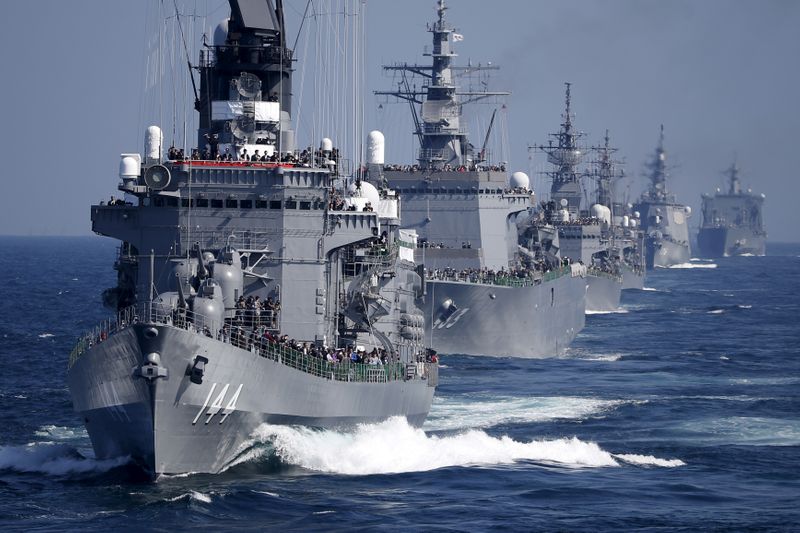By Azman Ujang
KUALA LUMPUR, Dec 29 (NNN-Bernama) — The Japan Maritime Self Defence Force (JMSDF), the world’s fourth-largest navy, has been patrolling the waters off the coast of Somalia and the Gulf of Aden in Africa for the past 10 years to protect Japan-affiliated vessels along this vital sea lane from acts of piracy.
However, there is a role that Malaysia plays in facilitating the deployment of JMSDF personnel that Japan is always thankful for — this year alone the servicemen made five transit stopovers at KLIA and Subang Air Base here on their way to their African missions as well as transiting here en route back home at the end of their three-month stints.
JMSDF’s 40th deployment unit made a transit at KLIA in September on their way to Djibouti and again recently for an overnight stay before returning to Japan.
Commander Naomi Igarashi, the Deputy Defence Attache at the Japanese Embassy in Malaysia, was on hand to receive the 32 personnel who arrived in two JMSDF turbo aircraft after long haul flights from Djibouti plus a stopover in the Maldives.
She told Bernama at KLIA that in the midst of the global COVID-19 pandemic, airports around the world allowing an overnight transit were limited.
“And Malaysia accepts our assets, allows us to stay overnight for refuelling and gives the crew the much-needed rest at a nearby hotel.
“We are very grateful for the support. Terima kasih,” said Commander Naomi, the first female naval attache at the Japanese Embassy here.
She pointed out that even amidst the pandemic, Japan has been continuing counter-piracy operations overseas and transits for inbound and outbound between Japan and Djibouti were a vital component for the deployment forces.
“Cooperation with Malaysia by these forces contribute to the maritime safety and security for the international community. Japan will continue to work with Malaysia and strengthen bilateral ties,” she added.
Emphasising the importance of JMSDF’s deployments, Commander Naomi said many merchant ships were making transits from Africa, Middle East and Eastern Europe on their way to Japan carrying oil and other goods and Japan was fully dependent on the sea-lift and such protection was very necessary for Japan’s prosperity and development.
She said the JMSDF and Malaysia had a long history of cooperation, not only on naval matters but also on multiple issues including on training of crew members and humanitarian disaster relief seminars.
Lt. Commander Masahiko Ishimura, who led the just-completed deployment said there had been no serious piracy incidents during their three-month mission.
“The most important thing is how to prevent the crew from being infected with COVID-19 during the mission and we completed our mission without any COVID-19 cases.
“We could not carry our mission without the understanding and cooperation of Malaysia and the international community,” he said.
In the first three years since it began deploying its assets in the region in 2009, more than 200 acts of piracy occurred each year, but thanks to continuous anti-piracy operations by the JMSDF and navies from other nations, piracy incidents have dropped drastically.
JMSDF aircraft conduct warning and surveillance operations in the flight zone. The information is constantly shared with other related organisations and contributes significantly to deterring acts of piracy and disarming vessels suspected as pirate ships.
Japan maintains a facility in Djibouti in order to improve the operational efficiency and effectiveness of the unit.
— NNN-BERNAMA






